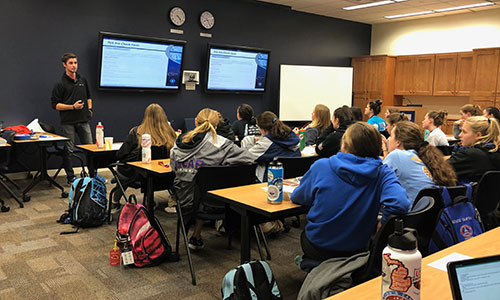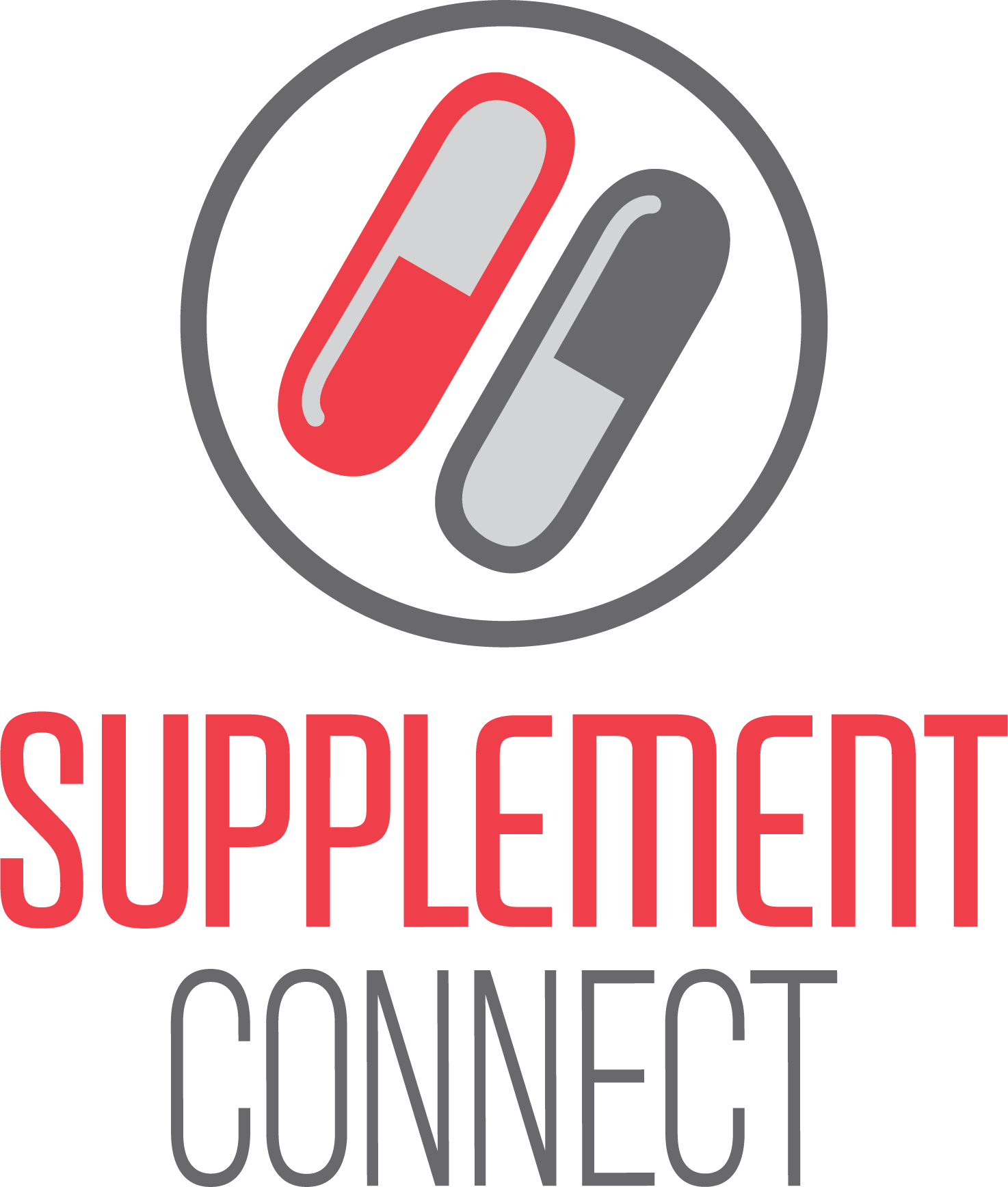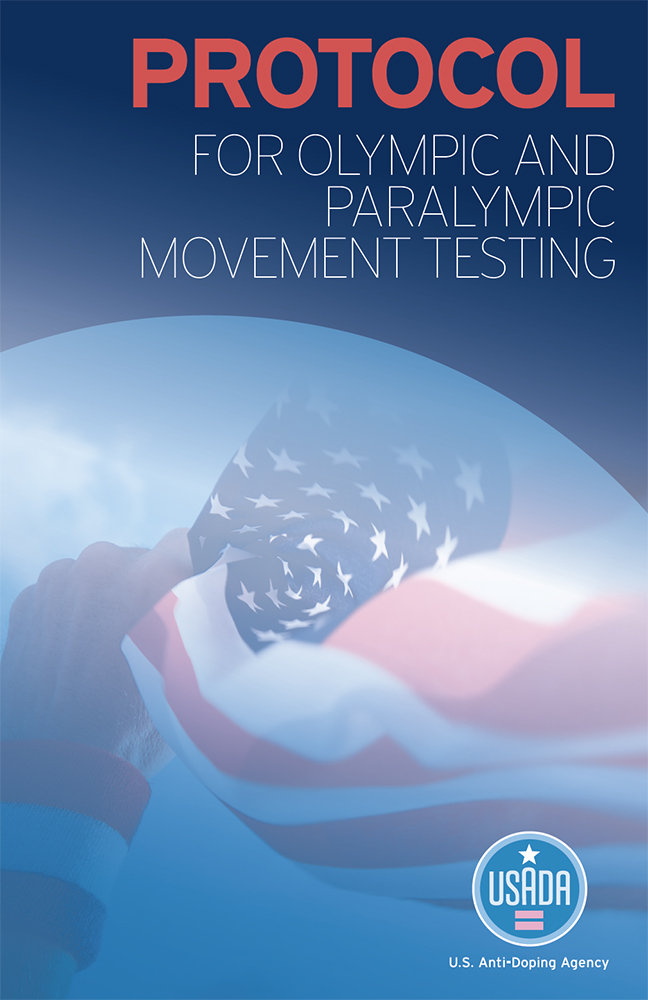USADA's Anti-Doping Programs
Overview
The U.S. Anti-Doping Agency (USADA) manages the anti-doping program for U.S. Olympic, Paralympic, Pan American, and Parapan American sport. To protect clean competition and the integrity of sport, USADA provides education, leads scientific initiatives, conducts testing, and oversees the results management process for all United States Olympic & Paralympic Committee (USOPC) sport national governing bodies, their athletes, and events.
USADA is a signatory to the World Anti-Doping Code and fully complies with the World Anti-Doping Code’s International Standards. Our anti-doping program is often referred to as the gold standard in the global anti-doping movement and we are at the forefront of the fight for clean competition.
Explore Our Focus Areas

Education is an extremely important pillar of an effective anti-doping program and is the first line of defense in protecting the rights of clean athletes. USADA provides extensive anti-doping education to thousands of athletes each year focused on helping athletes and support personnel understand their rights and responsibilities in regards to the drug testing process. Topics of discussion during an education session could include: prohibited substances; Whereabouts requirements; the sample collection process; dietary supplement awareness; Therapeutic Use Exemptions; and results management information.
USADA delivers its anti-doping education and athlete resources in a number of ways. USADA routinely provides in-person education training and presentations; conducts webinars for general and select audiences; provides online, interactive tutorials; and produces numerous brochures, pamphlets, packets, and online education resources.
 Science plays a crucial role in the fight for clean competition, and USADA’s expert scientists are leaders in the global anti-doping community. USADA’s science team has an especially significant impact on research and scientific advancement related to methods and practices for detecting and deterring the use of performance-enhancing drugs in sport. Between 2001-2009, USADA budgeted $2 million per year to support research on anabolic steroids, growth hormone, oxygen transport-enhancing substances, genetic doping, ethics, and other important topics. Today, anti-doping research efforts and resources are pooled and led by the Partnership for Clean Competition (PCC), a non-profit collaborative founded in 2008 by the U.S. Anti-Doping Agency, the U.S. Olympic & Paralympic Committee, the National Football League, and Major League Baseball.
Science plays a crucial role in the fight for clean competition, and USADA’s expert scientists are leaders in the global anti-doping community. USADA’s science team has an especially significant impact on research and scientific advancement related to methods and practices for detecting and deterring the use of performance-enhancing drugs in sport. Between 2001-2009, USADA budgeted $2 million per year to support research on anabolic steroids, growth hormone, oxygen transport-enhancing substances, genetic doping, ethics, and other important topics. Today, anti-doping research efforts and resources are pooled and led by the Partnership for Clean Competition (PCC), a non-profit collaborative founded in 2008 by the U.S. Anti-Doping Agency, the U.S. Olympic & Paralympic Committee, the National Football League, and Major League Baseball.
In addition to leading the advancement of anti-doping science, USADA has hosted the annual USADA Symposium on Anti-Doping Science since 2002, which brings together anti-doping experts from around the world to inform and shape meaningful anti-doping research programs for the future. The Symposium enables attendees to keep up-to-date with the latest research and scientific developments in anti-doping, while also providing them with a unique opportunity to meet with peers and colleagues in their field.
USADA makes available a number of drug reference resources for athletes, beyond general education, that can assist athletes and their support personnel with substance-related questions. USADA’s team of scientists, pharmacists, and supplement advisers have the experience and expertise to assist with questions on prohibited medications, Therapeutics Use Exemptions, and dietary supplements.

Global DRO®: The Global Drug Reference Online, or Global DRO, allows athletes, parents, coaches, support personnel, or any member of the public to search for the “prohibited” or “not prohibited” status of medications, including specific and generic brand names or individual ingredients. Global DRO is also sport specific, meaning that it indicates which substances are prohibited only in certain sports. Global DRO was created through a partnership between the Canadian Centre for Ethics in Sport (CCES), UK Anti-Doping (UKAD), and the U.S. Anti-Doping Agency. The Japan Anti-Doping Agency (JADA), Sport Integrity Australia, Anti-Doping Switzerland (ADCH), and Drug-Free Sport New Zealand (DFSNZ) have since become official Global DRO licensees. To visit Global DRO, please click here.
Drug Reference Phone Line: USADA’s drug reference service allows athletes and support personnel to speak with an expert about topics related to medications and prohibited substances. USADA’s drug reference phone line is staffed during business hours, Monday-Friday, 8 a.m.-5 p.m. MST. For more information about USADA’s drug reference phone line, please click here.
 Supplement Connect is among the most comprehensive educational resources for athletes, their support staff, and general consumers regarding the safety of dietary supplement products. The use of dietary supplements can pose both a health risk and an anti-doping risk, as there have been positive anti-doping tests linked to the use of dietary supplement products around the world. Supplement Connect helps athletes understand the risks associated with dietary supplement products and educates athletes on what they can do to reduce that risk as much as possible. Additionally, the Supplement Connect High Risk List provides a list of dietary supplement products that have a high risk of containing prohibited substances, including many products that USADA has tested and found to contain prohibited substances. To visit Supplement Connect, please click here.
Supplement Connect is among the most comprehensive educational resources for athletes, their support staff, and general consumers regarding the safety of dietary supplement products. The use of dietary supplements can pose both a health risk and an anti-doping risk, as there have been positive anti-doping tests linked to the use of dietary supplement products around the world. Supplement Connect helps athletes understand the risks associated with dietary supplement products and educates athletes on what they can do to reduce that risk as much as possible. Additionally, the Supplement Connect High Risk List provides a list of dietary supplement products that have a high risk of containing prohibited substances, including many products that USADA has tested and found to contain prohibited substances. To visit Supplement Connect, please click here.When an athlete has a legitimate medical need to use a prohibited substance or method, they can apply for a Therapeutic Use Exemption (TUE). USADA’s TUE application process is compliant with both the World Anti-Doping Code and the World Anti-Doping Agency’s (WADA) International Standard for Therapeutic Use Exemptions.
USADA’s TUE application process is designed to be as simple as possible for athletes, but a thorough evaluation is conducted in accordance with international rules to ensure that athletes with TUEs don’t experience performance-enhancing benefits. An athlete’s medical documentation and diagnosis is evaluated during the TUE application process. USADA’s TUE Policy, along with WADA’s International Standard for Therapeutic Use Exemptions, balances the necessity for athletes to have access to important medication with the need to protect a level playing field.
Fully committed to ensuring a safe and secure sample collection experience for athletes, USADA’s sample collection processes are fully compliant with the World Anti-Doping Code and International Standard for Testing and Investigations. Athletes may have blood, dried blood spot, urine, and/or other WADA-approved samples collected at an event (in-competition testing) or at another location (out-of-competition testing.)
Test Distribution Planning (TDP): Through the TDP process for both in- and out-of-competition testing, USADA works collaboratively with a number of entities to determine:
- How many tests will be collected
- Which athletes will be tested
- When testing occurs
- If urine, blood, and/or dried blood spot will be collected
- What special analysis may need to be performed on the samples
Doping Control Officers: USADA has more than 60 highly trained Doping Control Officers (DCOs) stationed throughout the world. Our DCOs are employees of USADA and receive extensive training and evaluation on in-competition and out-of-competition testing.
Event Management: USADA’s office staff and DCOs will work directly with event organizers to ensure the sample collection process runs smoothly at an event by securing a proper doping control station, providing necessary materials for athletes, and ensuring any necessary personnel or volunteers are available.
Sample Collection: In accordance with the World Anti-Doping Code and International Standard for Testing and Investigations, USADA’s DCOs obtain samples from athletes and work with a trained phlebotomist for blood draws, when necessary. USADA’s DCOs are trained on all aspects of the sample collection process, including best practices for unique situations and modifications for impaired and minor athletes. DCOs also help athletes properly complete all paperwork. Find more information here: Sample Collection Process information.
Sample Management & Analysis: USADA’s DCOs ensure accurate and prompt shipment of samples to a WADA-accredited laboratory, ensuring that the integrity of the sample is maintained and the proper chain of custody is recorded. All athlete samples are analyzed at laboratories accredited by the World Anti-Doping Agency (WADA), not by USADA, which ensures an additional level of independence and objectivity in determining the results of an athlete’s sample. All lab results are sent to USADA by the lab, as well as uploaded directly to the WADA Anti-Doping Administration & Management System (ADAMS). All WADA laboratories adhere to the WADA International Standard for Laboratories.
In the United States, there are two WADA-accredited laboratories: the UCLA Olympic Analytical Laboratory in Los Angeles, California, and the Sports Medicine Research and Testing Laboratory (SMRTL) in Salt Lake City, Utah.
For more information on WADA-accredited laboratories and sample analysis please, click here.
In compliance with the World Anti-Doping Code and relevant international standards, USADA is charged with handling the results management and adjudication process for U.S. athletes in Olympic, Paralympic, Pan American, and Parapan American sport. This independence removes the inherent conflict of interest associated with sport organizations trying to both promote and police their sports. USADA’s process affords a full and fair legal process to athletes and other sport personnel, including access to the Court of Arbitration for Sport (CAS) arbitrators in determining violations.
As a WADA Code signatory, sanctions issued by USADA, or independent CAS arbitration panels, are recognized by the more than 600 sport governing bodies and organizations that are also signatories to the WADA Code.
Click here for more information.
Powered by the experience and values of USADA, TrueSport inspires athletes, coaches, parents, and administrators to change the culture of youth sport through cornerstone lessons of sportsmanship, character building & life skills, and clean & healthy performance, by creating leaders across communities through sport.
TrueSport’s mission is:
To change the culture of youth sport by providing powerful educational tools to equip young athletes with the life skills and core values for lasting success on and off the field.
As the national anti-doping agency for U.S. Olympic, Paralympic, Pan American, and Parapan American sports, the U.S. Anti-Doping Agency (USADA) is equipped and prepared to assist any organization in promoting clean competition. USADA is a signatory to the World Anti-Doping Code (the Code) and fully complies with the Code’s International Standards. Our anti-doping services are based on comprehensive policies and procedures and executed by trained staff, qualified Doping Control Officers, and specialized Blood Collection Officers. We welcome the opportunity to work with those interested in standing with athletes to champion their right to clean sport and promoting the integrity of sport.



